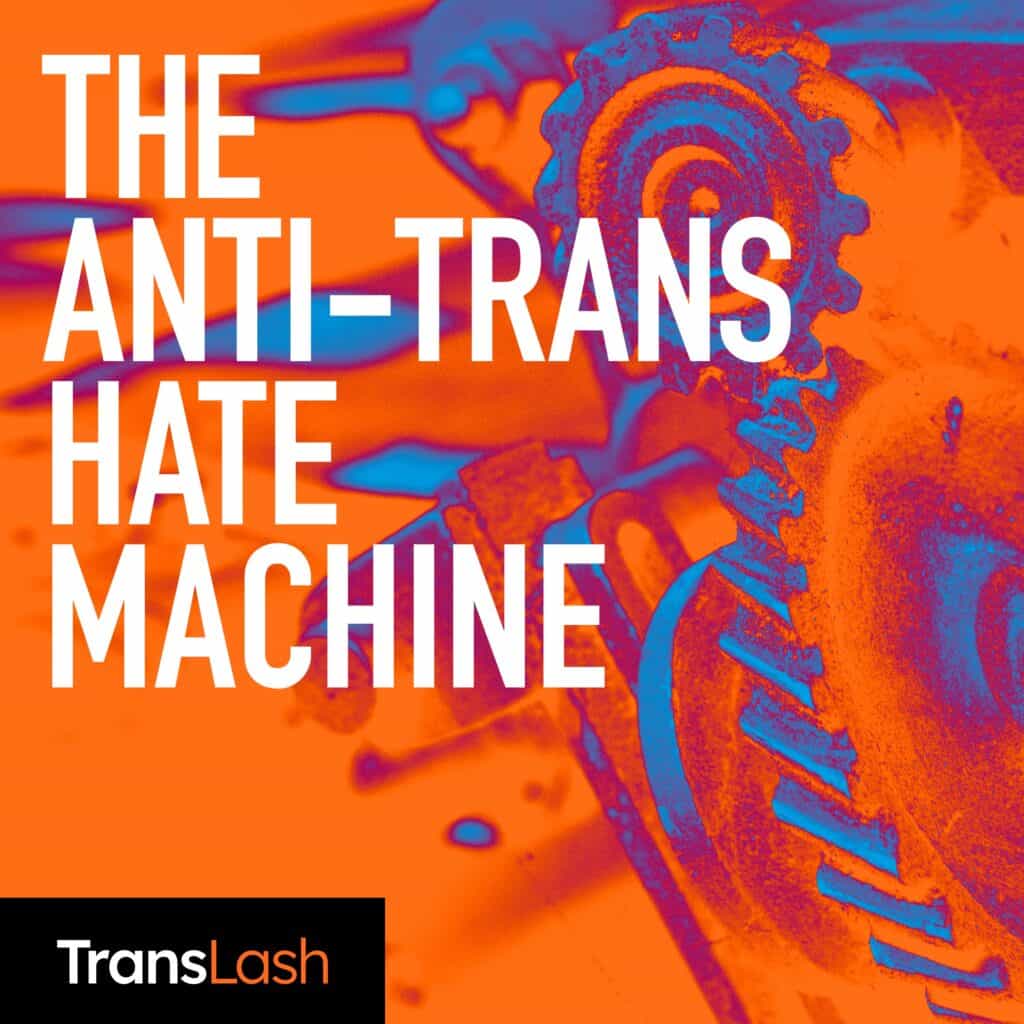2022 Winner
The Association of LGBTQ Journalists’
2022 Excellence in Podcast Award

Day by day, the attacks on trans kids grow louder, and more anti-trans bills keep moving through state legislatures. In the The Anti-Trans Hate Machine, we illuminate how the right wing has fueled these bills by generating a breathtaking and wide-ranging disinformation campaign.

Orange, red, blue, and purple cover for “The Anti-Trans Hate Machine” podcast.
2022 Winner
2022 Excellence in Podcast Award

Support Team TransLash’s cultural production and journalism by contributing to our offerings. Thank you for your support.
Explore More